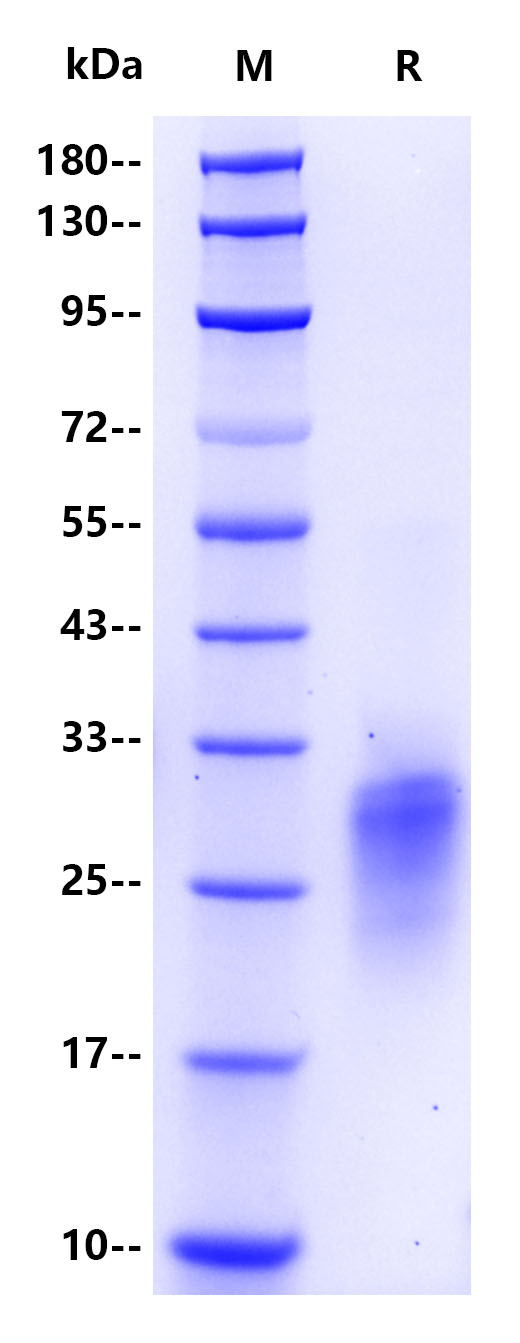Protein sequence (P49763-2, Leu19-Arg149, with C-10*His) LPAVPPQQWALSAGNGSSEVEVVPFQEVWGRSYCRALERLVDVVSEYPSEVEHMFSPSCVSLLRCTGCCGDENLHCVPVETANVTMQLLKIRSGDRPSYVELTFSQHVRCECRPLREKMKPERCGDAVPRRGGGGSHHHHHHHHHH
12 months from date of receipt, -20 ℃ to -70 °C as supplied.
1 month, 2 to 8 °C under sterile conditions after reconstitution.
Please avoid repeated freeze-thaw cycles.
Placental growth factor (PIGF) is a member of the VEGF (vascular endothelial growth factor) sub-family - a key molecule in angiogenesis and vasculogenesis, in particular during embryogenesis. The main source of PIGF during pregnancy is the placental trophoblast. PIGF is also expressed in many other tissues, including the villous trophoblast. Placental growth factor-expression within human atherosclerotic lesions is associated with plaque inflammation and neovascular growth. Serum levels of PIGF and sFlt-1 (soluble fms-like tyrosine kinase-1, also known as soluble VEGF receptor-1) are altered in women with preeclampsia.
Immobilized Human PIGF, His tag at 20 μg/mL (50 μL/well) can bind Recombinant Human VEGFR1 (C-Fc) with EC50 of 0.285-0.370 μg/ ml.
